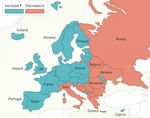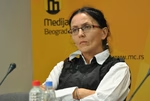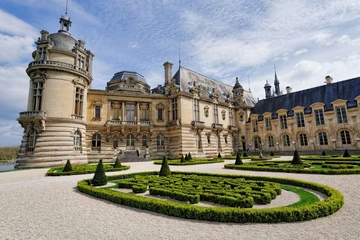
Director of the “Robert Schuman” Institute and chair of the Franco-German Foundation for Cultural Cooperation Doris Pack said during her stay in Mostar, Southern Bosnia, that nothing changed in his city. She said that the discussion concerning this city is not about national interests, but party interests.
“Whenever I come here I say the same thing, and that is that nothing changed neither in Mostar nor in Bosnia and Herzegovina. There is no agreement on the Election Law concerning Mostar, and now we have the same problem at the level of the Federation of Bosnia and Herzegovina entity. In essence, that Election Law is democratic and even the Venice Commission confirmed this, but we still have a problem which we all feared, and some even hoped for,” Pack said amid her lecture on topic 'Election campaigns of female candidates and EU integration' for members of political parties from Herzegovina, Southern Bosnia region.
“I am very sorry that a law that would resolve this situation was rejected once again because the rejection tells us that these are not national interests at stake, but interests of one party.”
She recalled that the EU has a policy for Bosnia and the Balkans in general.
“Of course we have a policy for this region, but Bosnia must intensify its cooperation, primarily among its entities and among regional countries. We all know that the European Commission adopted a strategic document with six different initiatives related to this region, with a special emphasis on Bosnia. The document emphasizes stronger cooperation especially in the fields of economy and security,” Pack added.
Speaking about her expectations of the October general election, she stressed that “everyone knows that politicians get along and tap each other on the back when they meet privately, but when they meet publicly, then they advocate the so-called national interests.”
“They don’t advocate for national interests. On the contrary, these are specific personal interests,” Pack concluded.
Four parties – the Democratic Action Party (SDA), the Alliance for Better Future (SBB), the Social Democratic Party (SDP) and the Democratic Front (DF), with support of the Our Party, agreed earlier on a law proposal that defines the geographical constituencies and the number of mandates in the Parliament of the FBiH, Bosnia's entity shared by Bosniaks and Croats, hoping they would solve the current political crisis that hinders the progress of the country.
In 2010, the Constitutional Court of Bosnia and Herzegovina issued a decision ordering that Bosnia's Election Law and the Mostar City Statute must be amended, because the Statute violates the basic democratic principle of 'one man – one vote.'
Since 2016, Bosnia's state-level Election Law has been a burning issue when the Constitutional Court ruled that some of its provisions were violating the state Constitution. One of the disputable provisions dictated that the Federation's cantons delegate at least one representative from each of the country's three main ethnic groups (Bosniaks, Croats and Serbs) to the Federation's House of Peoples.
Kakvo je tvoje mišljenje o ovome?
Učestvuj u diskusiji ili pročitaj komentare





 Srbija
Srbija
 Hrvatska
Hrvatska
 Slovenija
Slovenija


























































